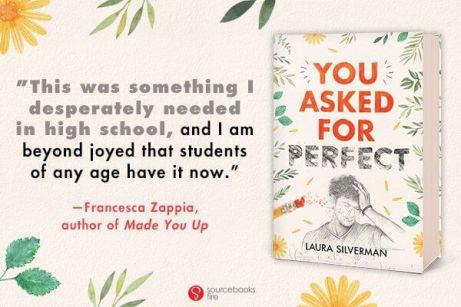Parallel - Student News

From the Editor
Welcome to another edition of Parallel! We’ve braved the past two months of self-isolation and online schooling and now it is time to don our uniforms once more. Well, some of us anyway.
Soon we’ll all be back on school grounds when it is safe to do so, but for that to happen, it is important that everyone obeys social distancing measures although most restrictions have been lifted.
Hopefully, this edition finds you well and you enjoy what we have to share. We would love to hear any thoughts you have or any experiences you wish to share about your quarantine experience. If you liked to send anything, please contact either myself or Ms Slywka on Teams.
Stay safe,
Ruth Jarra
Editor-in-chief
A review of 17776, a web series
Call this story incredible, and you wouldn’t even begin to cover half of it. Call it life-changing, and then you’d be getting somewhere.
17776, or What Football Will Look Like in the Future, is a speculative fiction multimedia web series by Jon Bois. All I can say about the premise is this: the less you know, the better. The experience of 17776 is one best served fresh with surprise. At first glance the series seems bizarre, incoherent even. A seemingly random string of web pages, each telling a fragment of a story. Don’t let the unfamiliar format or mention of football deter you. This story is not about sport.
It’s because of the sheer magnitude of the story that I am struggling to condense it. It’s overwhelming. It’s all-encompassing. Bois does a brilliant job of weaving so much into a story that manages not only coherency, but awe-inspiring profundity. At its very core, this is a story about the philosophy of play. It reaches deep into the heart and unravels something utterly, undeniably human, so much so that I could guarantee it would leave a meaningful imprint on anyone who reads it. Truly, it is an experience that will leave you spinning with your own questions.
Not only that, but the creativity of the formatting is in a league of its own. The web series completely dismantles the rules of traditional story formatting. It’s a collection of transcripts, videos, music, GIFs, and more. This only serves to intrigue the reader (listener? viewer?) further. What could an almost endless series of calendar pages possibly have to do with purposefully placed advertisements? Why the satellite images? And what is the aesthetic appeal of ‘neatly partitioned meats and cheeses’?
That’s the other thing about 17776. With such existential subject matter, it’s hard to expect such enjoyable humour. The dialogue shifts from charmingly awkward, to serious and poignant, to witty and light-hearted. It’s so lifelike that it easily creates a heartfelt intimacy between the readers and characters, making the immensity of the message one that’s not only easier to digest, but delightfully engaging. These conversations will have you falling in love with characters faster than a satellite can text back.
If you’re looking for a story to hurl you back into yourself with a sparkling new mindset ready to embrace life, then this is it. Read 17776. Then live as ferociously as you can.
By Neha De Alwis
(Views expressed in this review are individual opinion and do not reflect the newsletter as a whole)
A review of You Asked For Perfect, by Laura Silverman
Something that many young adult contemporary novels fall short of is adequate representation that it not just thrown in for diversity points. However, You Asked For Perfect, a novel by Laura Silverman, hits this mark every single time. We have a bisexual, non-white main character, Ariel, with an accurate portrayal of his Jewish culture (attributed to how Silverman herself is Jewish) and a POC love interest, Amir, who is Muslim and gay. Ariel’s best friend is a Korean lesbian; lack of diversity is hardly a concern. And it all flows seamlessly and naturally as would any diverse friend group would in reality. Nothing felt stifled or forced which is a huge plus in my opinion as many times I have read novels with representation that felt more like a footnote in the story. If I’m going to be honest, I can hardly recall if there were any white characters. (Many of the characters that readers are introduced to are due to proximity to the main characters, such as family or community members, so it makes sense that there are less non-POC characters).
Another reason why I think this novel would appeal to our readers is the fact that it deals heavily with the pressures of high school; albeit American high school but it runs parallel to the academic stress Nossal students face each day. Ariel is a high achieving student who has had his eyes set on Harvard from the day he entered high school. He has to prepare his upcoming Harvard interview, expectations for valedictorian, competitive classmates, being in his best friend’s band, playing first chair violin and his community work. It is a fine balance for him to juggle which threatens to collapse when he fails his calculus quiz. This is where Amir comes in, agreeing to tutor Ariel which is a hit on Ariel’s academic pride. Throughout the rest of the novel Silverman draws readers in and the anxiety and pressure Ariel faces is deeply felt by readers. None of the novel feels exaggerated. Silverman takes these themes seriously and writes them in such a way that you are immediately empathetic for the characters.
I recommend this novel for a quick engaging read where the focus isn’t romance but the growth of a character who learns that you can ask for help and that academics is not everything. This is a lesson that can be learnt for everyone, one that Silverman teaches well. The only perceived issue I had personally with the novel was the quick pacing which may have been purposeful to add to the anxiety felt by readers as the novel progressed. Aside from that, this is everything I want from a novel and I bet it’s everything you want too.
Happy reading,
By Ruth Jarra
(Views expressed in this review are individual opinion and do not reflect the newsletter as a whole)
If you do read this book and would like to talk more about any future book/show/podcast reviews, message whichever author of the review and we would be happy to talk about them with you.
Dear Earth, with love, from Mars, a correspondence
To my Earth,
How is the weather over there? The broadcasts are saying that there was a drop in the oxygen levels and a rise in incompetent leaders.
I know that it is Spring for you now, but the postal system is still in its infancy meaning you will be enjoying those autumn leaves you love so much before this letter reaches you. It is Wednesday so I am writing this while watching the artificial rain wash off the dust settled on my letterbox (which has been empty for quite some time… have you been writing?). The only letter I have gotten this Solstice was from Government Sector-9A. They are adding another cycle of rain, something about soul cleansing.
I miss you. Funny, I know. How can I when we have never met? But I do. As much as I miss mandarins, both of you are familiar comforts. They have stopped shipping them in. Tension between Earthen grocers and Martian providers I assume. I have dreamt about it. Sitting in your yellowed living room and peeling fruit. Feeding each other. Food is not love language here on Mars - no one says ‘I love you’ with ice-cream or ‘I’m sorry’ with pie.
And it’s hard to be eloquent in the language we do share, but the greatest gift this planet has given me is this language- invented for the sake of diplomacy of course, but I have found I can be intimate with these rigid words. Tenderness predates language I suppose. What do you think?
As always, looking forward to your correspondence,
Your dearest Mars
This is a series of letters written by Amy Chu and Ruth Jarra, in the perspectives of Earth and Mars. Each edition will see a new letter, so stay tuned for the next.
Get in touch
Ruth Jarra
Editor-in-chief




